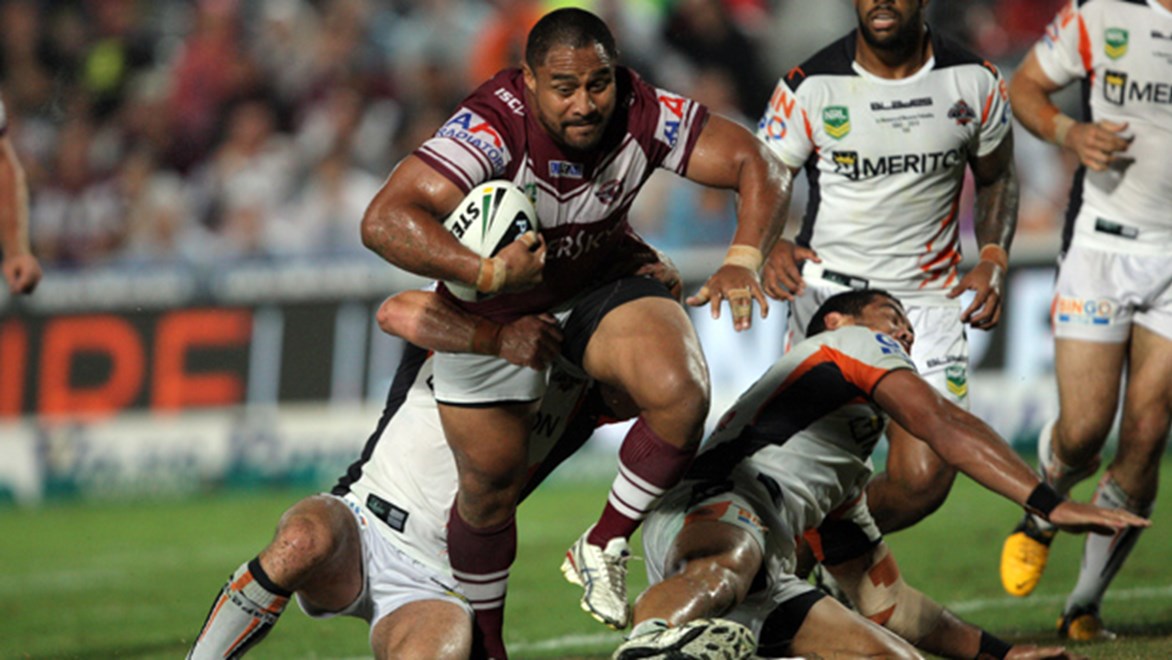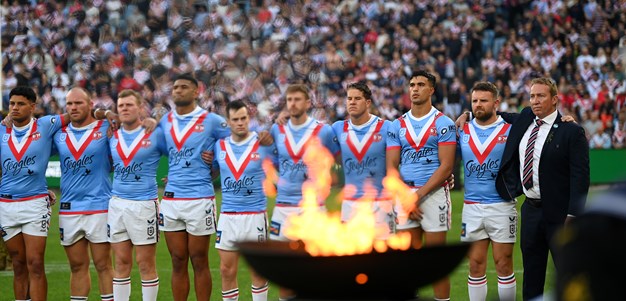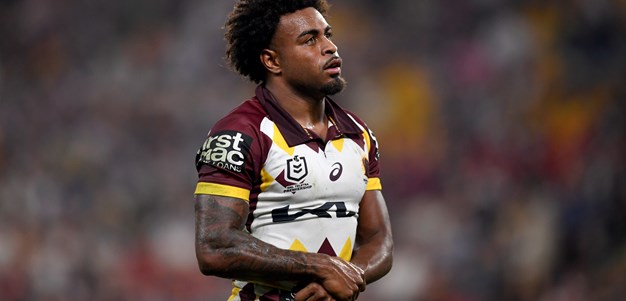

There’s no question that rugby league is a game of inches, with touch-and-go moments strewn throughout the 80 minutes of every NRL game. Players flirt with sidelines; players miss tackles by a hair’s breadth; players lose concentration in a split instant and spill the ball; and players punch through gaps with inch-perfect timing.
But the NRL is mostly a game of metres, with the territory each team gains and the territory each team concedes vital to who gets the competition points on any given day.
Rolling up the sleeves and grinding out the metres up the field gives attacking players a chance to put on the scoring moves. And restricting opponents from gaining good field position limits their opportunities to inflict damage.
Statistics compiled by NRL.com show that while some teams are grinding out enormous metres in games, their good work is effectively cancelled out by the metres they surrender to their opponents. And some teams that struggle to make an impression in attack are limiting the potential damage by doing a stellar job of keeping the opposition at bay.
Looking at a team’s ‘metres differential’ – overall metres conceded subtracted from metres gained – is a great indicator to how they are performing in both attack and defence.
The results – some of which will raise eyebrows – go a long way to explaining why some teams are soaring at the top of the table, while others are languishing near the bottom.
So who are the standouts through Round 5, and which teams are struggling?
The leaders when it comes to overall metres differential are the Manly Sea Eagles with a whopping 244.6 metres average advantage over their opposition each week! Geoff Toovey’s boys are certainly winning the battle in the middle and on the edges, leading all sides for metres gained (1451.4) and conceding the fewest metres (1206.8).
The Knights are the big surprise on the list. After finishing 2012 with a horror -55.7 metres differential Wayne Bennett’s charges have certainly turned things around in the early stages of 2013, ranking an impressive second behind Manly with a +192.4 differential.
Competition co-leaders Souths and Melbourne are doing well but vary in the way they manage field position. Souths rank third for metres differential (+192.4), sitting third for metres gained but only sixth best for metres conceded. Melbourne rank fourth for metres differential (+69.4) but are better performed at limiting oppositions (third-fewest metres conceded) than gaining metres (just eighth most).
Only three other teams boast a positive metres differential: the Titans, Cowboys and Sharks. It’s no surprise to see all three in or around the top eight at this stage.
Tenth-placed Parramatta (-15.2) and seventh-placed Brisbane (-17.6) are the first of the teams with a negative metres differential. Gaining territory seems to be the problem for both sides, with the Eels ranking 13th for metres in attack and Brisbane only marginally better, making the seventh fewest metres by any team.
The stats indicate the Sydney Roosters are doing well to rank fifth on the premiership ladder, given they rank 10th on the metres differential scale (-33.6). If they don’t improve their go-forward (1258.8 – third fewest metres) they could struggle the deeper the season goes.
Next we have a trio of teams struggling for consistency – the Dragons (-50.4), Panthers (-55) and Raiders (-56.4). The Dragons rank rock bottom for conceding territory, leaking 1456.4 metres every week – although that number doesn’t necessarily reflect the nature of their defence, given they concede few penalties each game and are prepared to let sides roll downfield and then back their goal-line defence.
Next are the ‘worry’ teams: the Bulldogs, Warriors and Wests Tigers.
Last year Canterbury finished the regular season with a metres differential of +18.7 – through Round 5 they are struggling with a -112.4 average. Clearly the returns of tall timber runners Sam Kasiano and James Graham, as well as a burst back to best form from Ben Barba, cannot come quickly enough!
The Warriors? They were strugglers last season, with a metres differential of -102 – but things have gone from bad to worse for them, as they now concede a whopping 182.8 metres on average every week!
Which brings us to the Wests Tigers. They finished last season with a metres differential of -83.3. Through Round 5, however, they are conceding a territorial advantage of 217.6 metres every game! With no Keith Galloway, and now no Benji Marshall for a month, their prospects of improving that figure any time soon look slim.
There you have it. We’ll bring you an update on your team’s metres differential approaching the midpoint of the season. Or you can keep track of it by visiting the Match Centre every week.
2013 Average Metres Differential
1. Sea Eagles +244.6
2. Knights: +192.4
3. Rabbitohs: +112.6
4. Storm: +69.4
5. Titans: +69
6. Cowboys: +38.6
7. Sharks: +9.8
8. Eels -15.2
9. Broncos: -17.6
10. Roosters: -33.6
11. Dragons: -50.4
12. Panthers: -55
13. Raiders: -56.4
14. Bulldogs: -112.4
15. Warriors: -182.8
16. Wests Tigers: -217.6
2013 Average Metres Gained
1. Sea Eagles: 1451.4
2. Sharks: 1444.4
3. Rabbitohs: 1424.2
4. Titans: 1418.2
5. Knights: 1412.2
6. Dragons: 1406
7. Cowboys: 1354.8
8. Storm: 1345.4
9. Bulldogs: 1330.8
10. Broncos: 1320.4
11. Raiders: 1290.2
12. Panthers: 1281.8
13. Eels: 1269.6
14. Roosters: 1258.8
15. Warriors: 1215
16. Wests Tigers: 1168.6
2013 Average Metres Conceded
1. Sea Eagles: 1206.8
2. Knights: 1219.8
3. Storm: 1276
4. Eels: 1284.8
5. Roosters: 1292.4
6. Rabbitohs: 1311.6
7. Cowboys: 1316.2
8. Panthers: 1336.8
9. Broncos: 1338
10. Raiders: 1346.6
11. Titans: 1349.2
12. Wests Tigers: 1386.2
13. Warriors: 1397.8
14. Sharks: 1434.6
15. Bulldogs: 1443.2
16. Dragons: 1456.4
• Through Round 5



